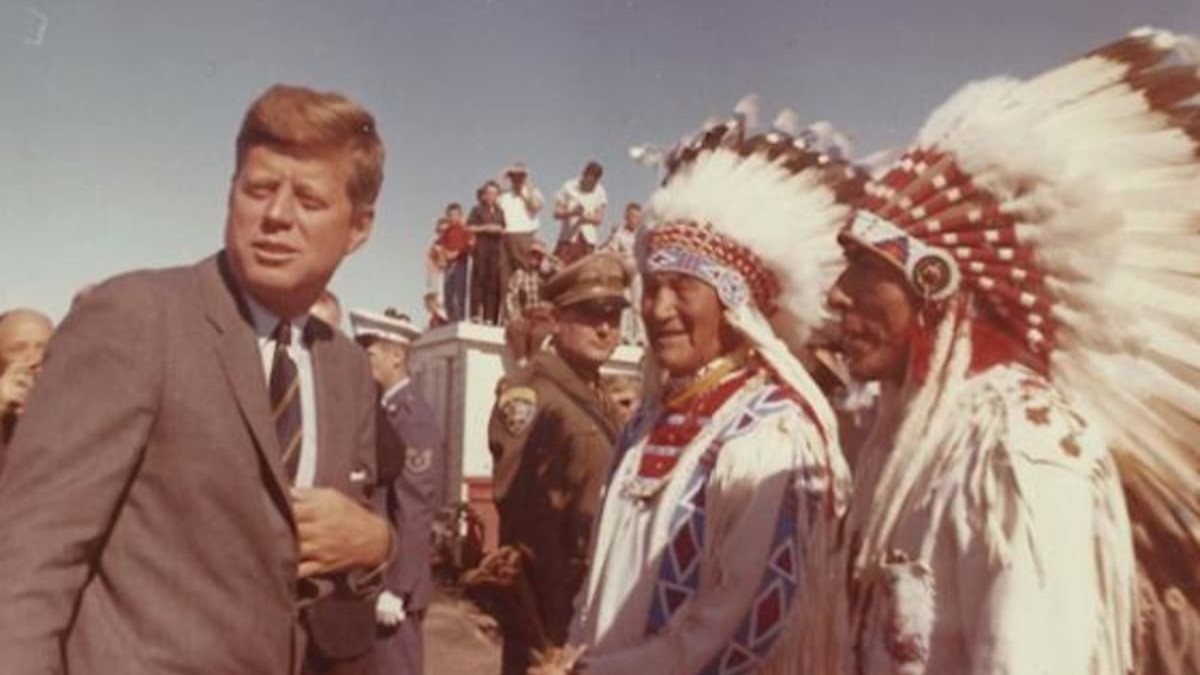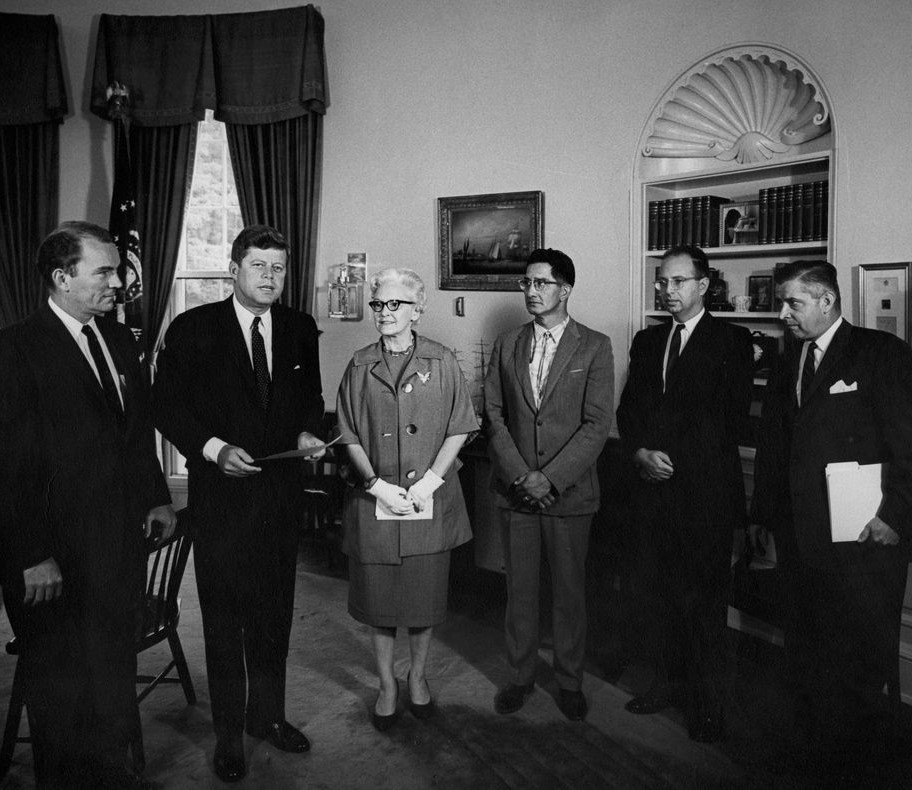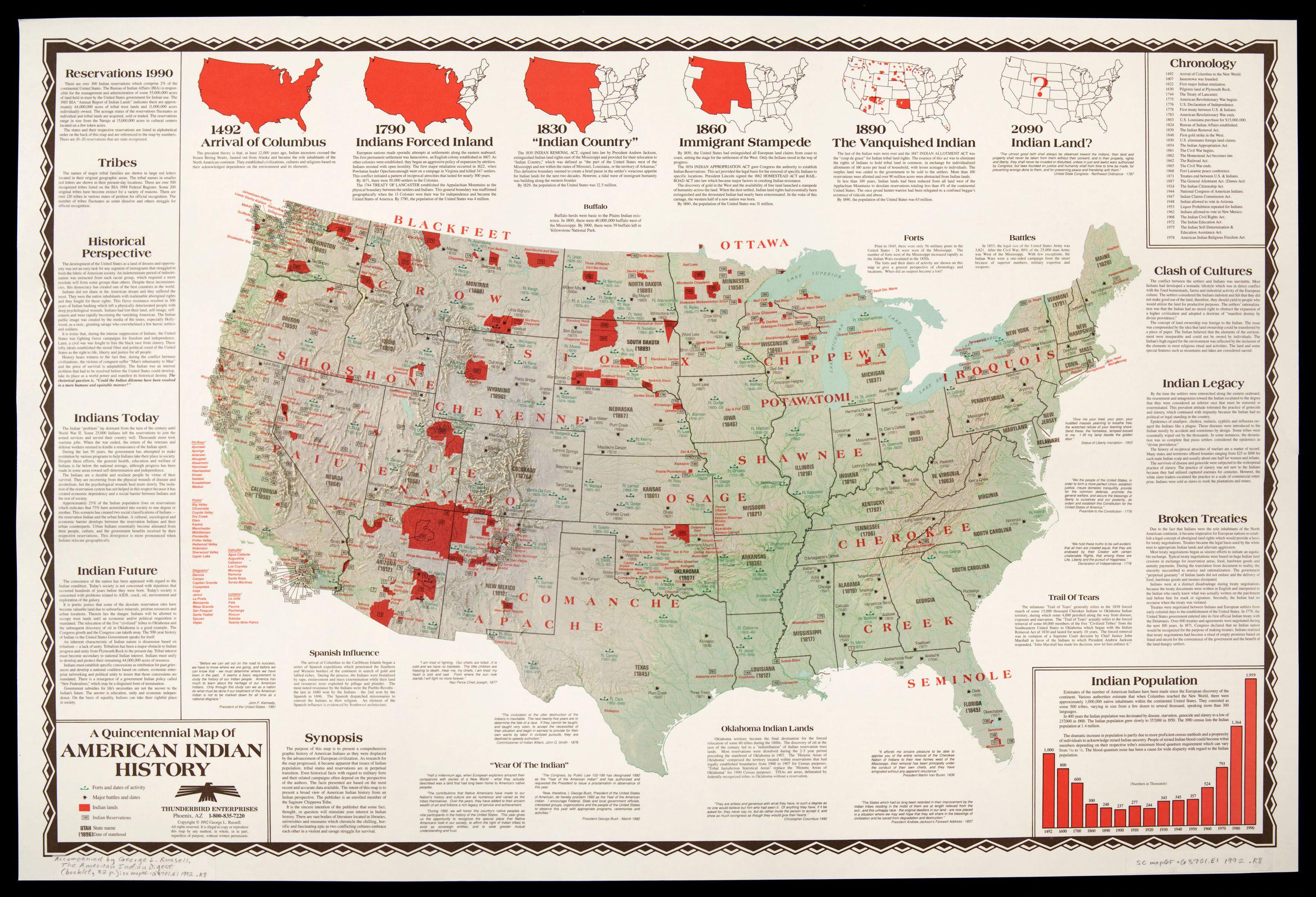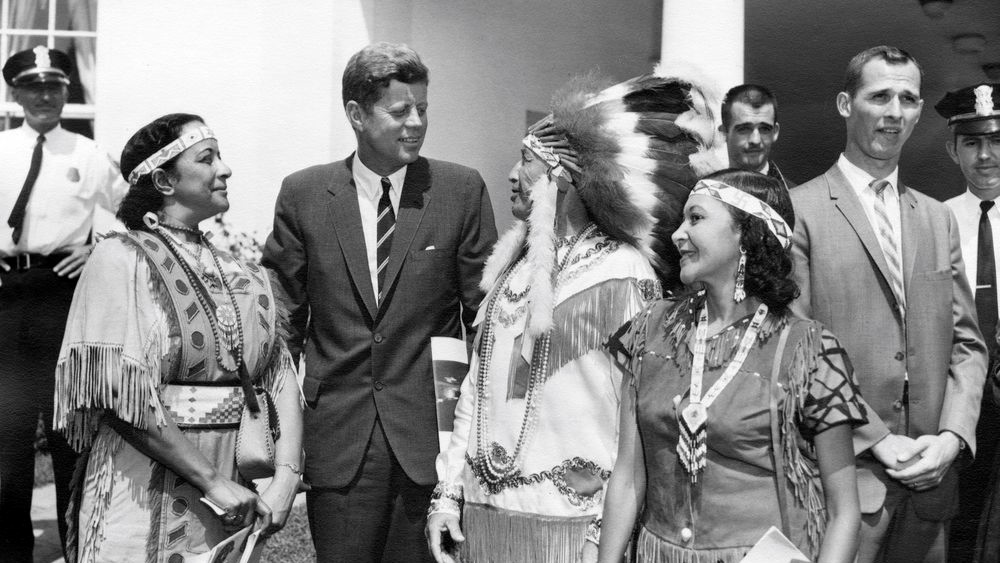President Kennedy wrote for American Heritage that it’s important to remember the contributions of Native Americans, as well as their mistreatment.
-
Summer 2025
Volume70Issue3

Editor's Note: John F. Kennedy is remembered for his record on civil rights, but his efforts to extend basic protections to one of the country's most vulnerable groups — its first inhabitants, Native Americans — are too often forgotten. During his short time in office, the 35th president became a vocal champion of Indian country, helping to ensure Native American sovereignty at a time when it was in jeopardy. Kennedy actively courted the American Indian vote during his presidential campaign, promising to end to policies of tribal termination and relocation that had decimated Native American communities in the preceding decade. In office, his administration was the first to bring public housing to Native American reservations, beginning with a grant to the Oglala Sioux on the Pine Ridge Indian Reservation in South Dakota. Kennedy reasserted these commitments in 1962, when he welcomed delegates to the American Indian Chicago Conference to the White House, where he stressed the "very strong obligation which any American, whether he was born here or came here from other parts of the world, has to every American Indian.”
President Kennedy wrote publicly about his compassion for the first Americans —specifically in his introduction to The American Heritage Book of Indians, published shortly after he entered office in 1961. The essay isn't the first he wrote for this magazine, but it does showcase his reverence for Native Americans and their contributions to the country's history.

For a subject worked and reworked so often in novels, motion pictures, and television, American Indians remain probably the least understood and most misunderstood Americans of us all.
American Indians defy any single description. They were and are far too individualistic. They shared no common language and few common customs. But, collectively, their history is our history and should be part of our shared and remembered heritage.
Yet even their heroes are largely unknown to other Americans, particularly in the eastern states, except perhaps for such figures as Chief Joseph and his Nez Perce warriors of the 1870s, Osceola and his magnificent, betrayed Seminoles of the 1830s, and possibly Sacagawea, the Shoshoni “bird woman” who guided the lost Lewis and Clark expedition through the mountain passes of Montana.
When we forget great contributors to our history—when we neglect the heroic past of the American Indian—we thereby weaken our own heritage. We need to remember the contributions our forefathers found here and from which they borrowed liberally.
When the Indians controlled the balance of power, the settlers from Europe were forced to consider their views, and to deal with Indians by treaties and other instruments. The pioneers found that Indians in the Southeast had developed a high civilization with safeguards for ensuring the peace. A northern extension of that civilization, the League of the Iroquois, inspired Benjamin Franklin to copy it in planning the federation of states.

But when the American Indians lost their power, they were placed on reservations, frequently lands which were strange to them, and the rest of the nation turned its attention to other matters.
Our treatment of Indians during that period still affects the national conscience. We have been hampered — by the history of our relationship with the Indians — in our efforts to develop a fair national policy governing present and future treatment of Indians under their special relationship with the federal government.
Before we can set out on the road to success, we have to know where we are going, and before we can know that, we must determine where we have been in the past. It seems a basic requirement to study the history of our Indian people. America has much to learn about the heritage of our American Indians. Only through this study can we as a nation do what must be done if our treatment of the American Indian is not to be marked down for all time as a national disgrace.


